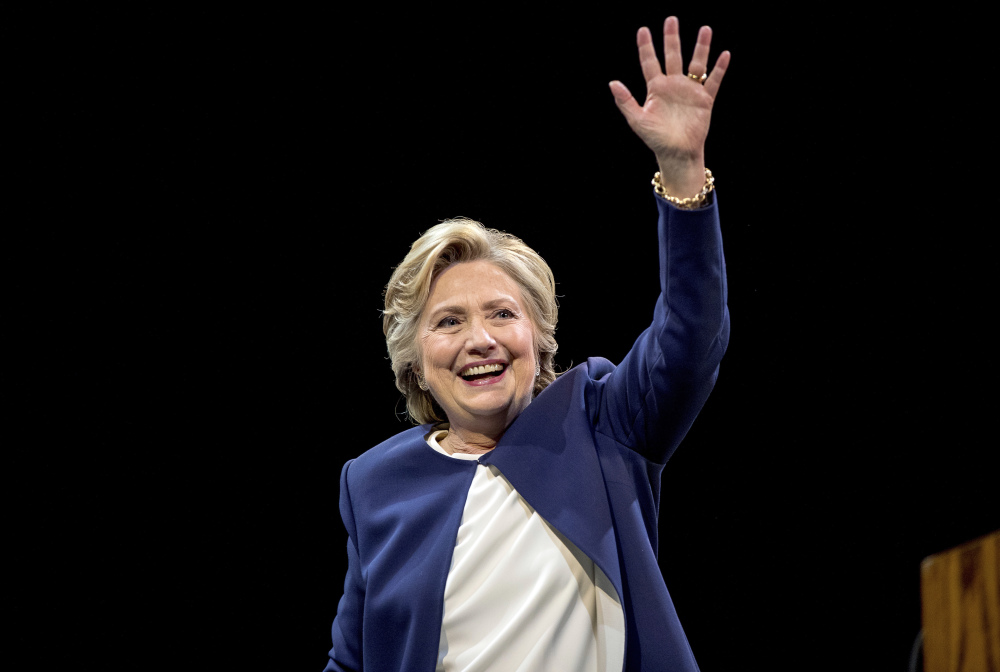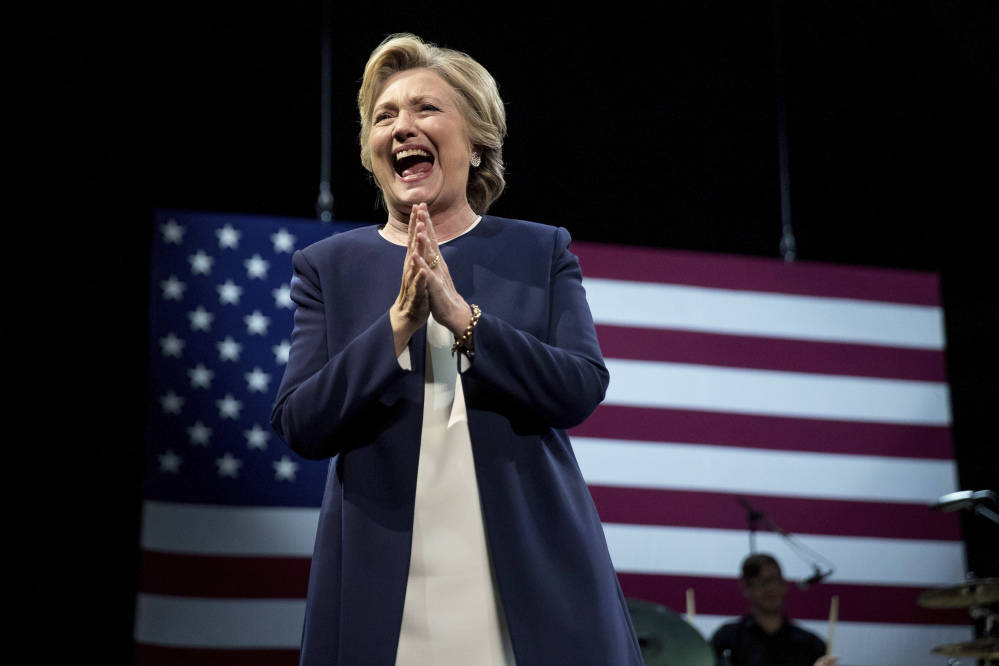The intersection of money, politics, privilege and privacy remains tricky for Clinton to negotiate.
You wouldn’t think there was much left to learn about Hillary Clinton after her nearly four decades in the public arena.
But Clinton’s time as secretary of state and as a private citizen after her failed 2008 presidential campaign have generated new issues revolving around the intersection of money, politics, privilege and privacy.
Her use of a private email setup as secretary of state has stirred up a hornet’s nest over her loose handling of classified material and fed the perception she tries to play by her own set of rules.
Her big haul of money from private speeches to Wall Street interests after she left the government stoked questions about whether she would really look out for ordinary Americans. Recent leaks about the content of those speeches have fed into talk about whether there are really two Clintons – one public, one private, as she pretty much acknowledged in communications that she intended to stay private.
And Clinton’s links to her family’s foundation while she was secretary of state have transported age-old questions about the influence of money into an all-new context. Never before have there been husband and wife presidencies, with all the swirling interests and potential conflicts that sort of power couple would bring.
A look at some of what’s been learned about Clinton over the course of the campaign:
TOP-DOLLAR SPEECHES
Clinton’s lucrative speeches to Wall Street interests behind closed doors in the run-up to her presidential campaign were a frequent topic of primary-season criticism by Democratic rival Bernie Sanders, who depicted Clinton as part of a system rigged to benefit the rich. In the 18 months before announcing her second presidential campaign, Clinton addressed private equity investors in California, bankers in South Carolina and brokers in Florida. An AP analysis found that over a 15-year period, Clinton and her husband made at least $35 million by giving 164 speeches to financial services, real estate and insurance companies after leaving the White House in 2001.
SECRETS REVEALED
Clinton’s refusal to release the transcripts of those speeches was an ongoing issue during the campaign – until WikiLeaks took matters out of her hands and released hacked campaign emails containing excerpts of her speeches starting last week. The excerpts suggest she took a more accommodating tone toward Wall Street in private than she did in public. While offering herself in public as a product of middle-class America, Clinton acknowledged in a private 2014 speech: “Obviously, I’m kind of far removed because the life I’ve lived and the economic, you know, fortunes that my husband and I now enjoy.” In a speech transcript from 2013, she said that negotiating deals sometimes requires “a public and a private position” to get things done. That fed into suspicions Clinton is not always straight with voters about what she wants to accomplish.
EMAIL ALARMS
Revelations in 2015 that Clinton used a private email account and server when she was secretary of state set off a number of alarms: What was she hiding? Was classified material compromised? Was she trying to avoid public records requirements? Word that Clinton had deleted tens of thousands of emails that she said were unrelated to official business only added to the intrigue. A review by the State Department’s internal watchdog concluded the practice violated several policies for the safekeeping and preservation of federal records. A separate yearlong FBI investigation found no evidence that Clinton or her aides intended to break laws governing the handling of classified information. But FBI Director James Comey concluded, “There is evidence that they were extremely careless in their handling of very sensitive, highly classified information.” The case was closed without any criminal charges.
THE FOUNDATION
From the beginning of Clinton’s tenure as secretary of state, there were questions about how to ensure that all the money flowing into the Clinton Foundation, particularly contributions from foreigners, didn’t influence her dealings in government. A number of guidelines were put in place to guard against conflicts of interest. Even so, an AP review of Clinton’s calendars and daily schedules found that more than half the people with private interests outside of government whom she met with while secretary of state gave money – either personally or their companies or groups had given it – to the Clinton Foundation. The AP’s review did not include Clinton’s many meetings with foreign diplomats or government employees, instead focusing on the discretionary meetings she agreed to have. The meetings did not appear to have violated conflict-of-interest guidelines and the Clinton campaign noted some were with high-profile people who a secretary of state would likely always meet with. But the meetings fed into Republican accusations that access to Clinton was available to donors.
DONOR NETWORK
Clinton’s political fortunes are inextricably tied to her husband’s, and so are her finances. A Washington Post investigation in November 2015 toted up an unparalleled $3 billion that the Clintons had raised over four decades for their various political campaigns and the charitable foundation started after Bill Clinton left office. Nearly $2 billion of that total went to the foundation. The Clintons’ cultivation of this vast and loyal donor network helped Hillary Clinton mount a formidable presidential campaign but also has served to undercut her image as a champion of the middle class unbeholden to moneyed interests.
OLD BUSINESS
There are plenty of Clinton issues from days of old that lurk in the background of this campaign. Among them: the impeachment of Bill Clinton for the Monica Lewinsky affair, Hillary Clinton’s big profits from trading commodities as Arkansas first lady, and Whitewater, the name of the Clintons’ failed land deal in which neither was ultimately found to have done wrong. Donald Trump has tried, in particular, to make a new issue of how Hillary Clinton handled the allegations of sexual improprieties leveled at her husband. Trump claims that Clinton bullied and shamed her husband’s accusers. Hillary Clinton did work behind the scenes to discredit his accusers; there is no clear or independent evidence that she bullied them.
Send questions/comments to the editors.




Comments are no longer available on this story